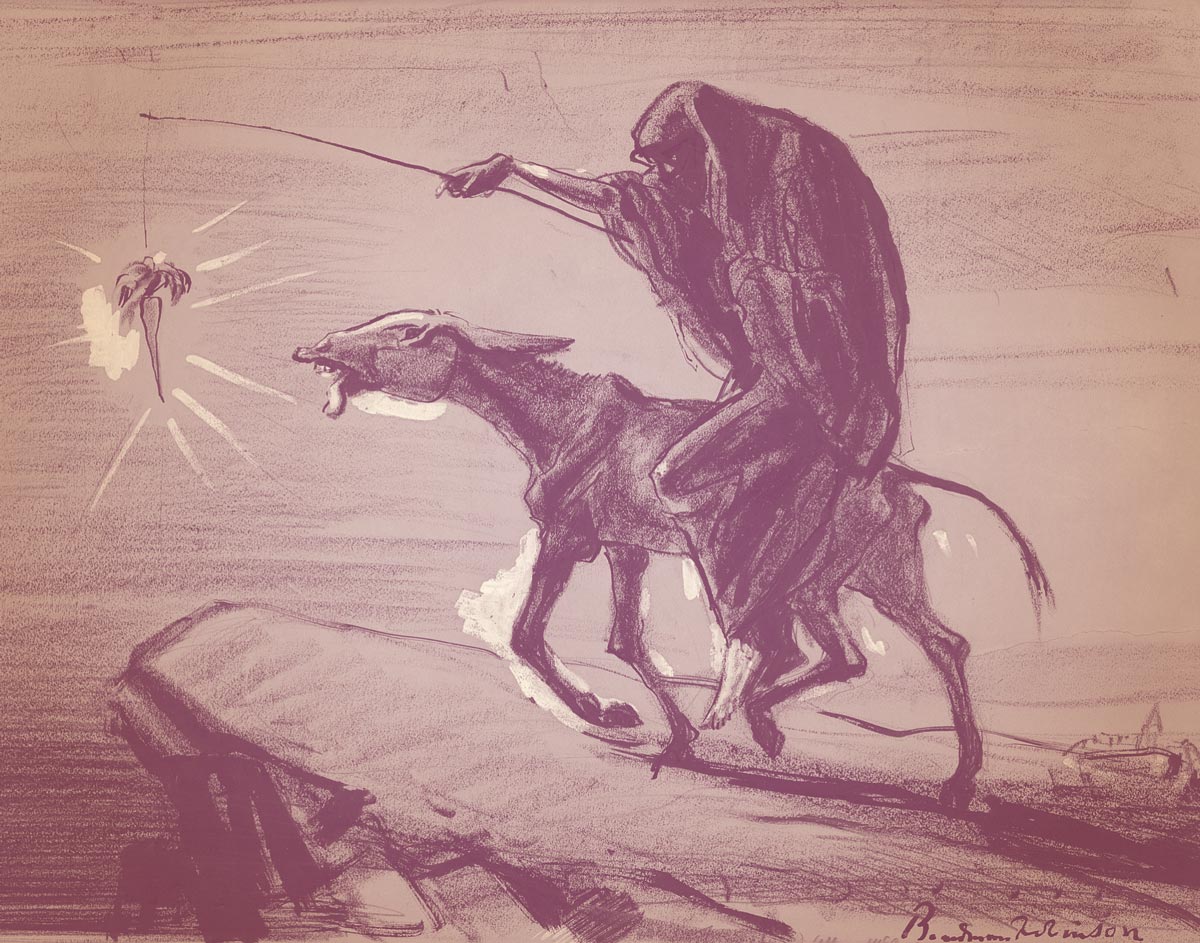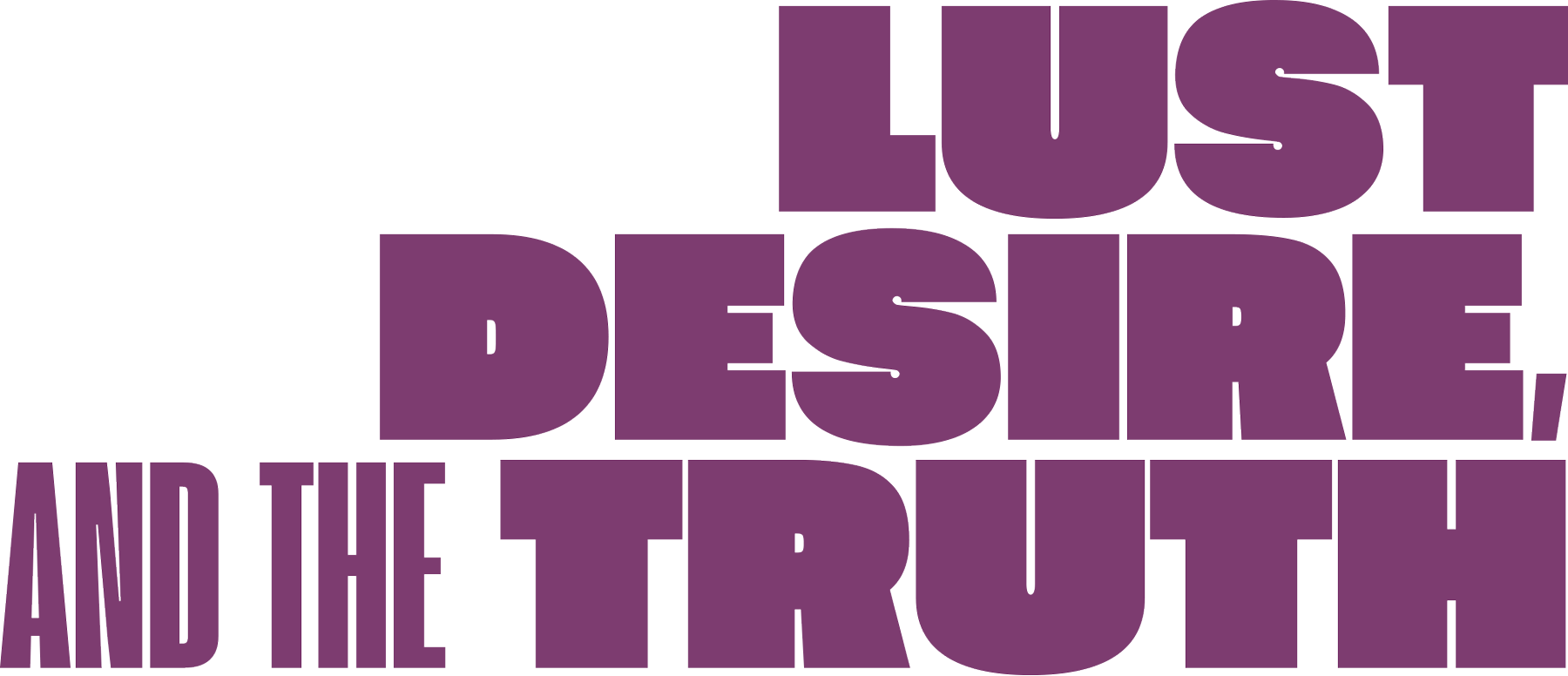

You’ve Been Strung Along for Way Too Long

Lust, likewise is also characterized by a compelling drive to secure something just beyond reach. Lust, however, pursues an object that cannot quite be secured. Lust promises a certain gratification; and while simply engaging in the pursuit of the thing lusted after may offer pleasure, somehow lust never quite delivers. In short, lust lies by making promises it cannot keep.
Lust invites us to direct our desires towards wholly unobtainable things, ever feeding us on the illusion of a fulfillment that never arrives—because it cannot arrive.
We see it in Eden. Beautiful things are all around, and the heart and soul brim with desire because God’s creation honors every sensual faculty with which the first pair is endowed. Alas, one tree illicitly invites them. While all the trees share equally in allure, this one tree heightens the desire because of a whispered promise:
Eat the fruit of this tree and you will receive Divine prerogatives and power – “ye shall be as Gods!”
That was an undeliverable promise because, after all, the tree is forbidden (with good reason). But the promise made offers a compelling appeal for a pursuit, and that tree becomes the first lusted after thing in all creation. A few juicy bites later, both Adam and Eve were fully committed to pursue the unreachable, to try to possess the unobtainable.
They were promised that the reward would be great, thrilling even; but it was all a bright, shining lie.
The evil of lust comes from cherishing a self-centered notion that I have entitlements that I am being unjustly denied, and I must have them—even though they are not mine to have!
Desire, on the other hand, when mature and rightly maintained, is a holy thing. It actually seems designed to help us transcend the prison of feeble complacency. It lifts us beyond the tyranny of our own narrow self-absorbed concerns. In doing so, desire allows us to move closer to the God who is indeed self-identified as “The Desire of all nations” (Hag 2:7), and we may learn what it means to live beyond fear and self-seeking.
We’re talking about desire rightly maintained and cultivated. Desire allows us to be fueled by passions that help us to connect with others, even to the point of sacrifice, and it ushers us to the edges of ecstasy as we learn how to yield the “I” in favor of the “We.”
Now, this is where it gets tricky.
When Lust steps in, it intrigues and offers Desire a new mission. It asks Desire to go off on some ill-advised quest for something not only beyond reach but absolutely unobtainable.
Desire can be a good thing when it is directed towards subjects/objects that lift us through their attainment and achievement (think education, or a loving companion). But at the behest of Lust, Desire becomes unmoored and goes to seed, then goes astray like an untethered dog; finally victimizing its host by seducing him/her into a state of unquenchable longing.
When I learn that the euphoria that I am pursuing in that powder or that pill will not bring me peace, the power of lust is broken. When the truth reveals that the million-dollar home will not make me feel secure, nor will the pleasure of a tryst with some agent of beauty banish my flagging sense of self, then I can be free!
“You will know the truth, and the truth will make you free” (John 8:32).
Within the framework of that truth, I learn what I actually can possess, what pursuits may actually yield obtainable ends. Desire may then lead me forward; and although every desired thing may not be realized, the pursuit and the journey are legitimate and real. I learn to accept that the journey is as meaningful as the destination; the struggle as meaningful as the goal achieved. Like the Apostle Paul, I can say, “I do not count myself to have apprehended; but one thing I do… I press toward the goal” (Phillippians. 3:13, 14, NKJV).
But only Truth can free me to live unfettered by vain and fruitless questing for unobtainable things. Only Truth can inform me of what is actually mine to have, what pursuits may actually belong to me. Only Truth can be the compass for my God-given desire, that will serve to lift me above fear and brokenness, allowing me to transcend those things in favor of that which I am favored to possess.
Otherwise, I will find myself being seduced by the siren songs of lust, promising unimaginable things—that seem to always lie just around the bend and over that next hill.